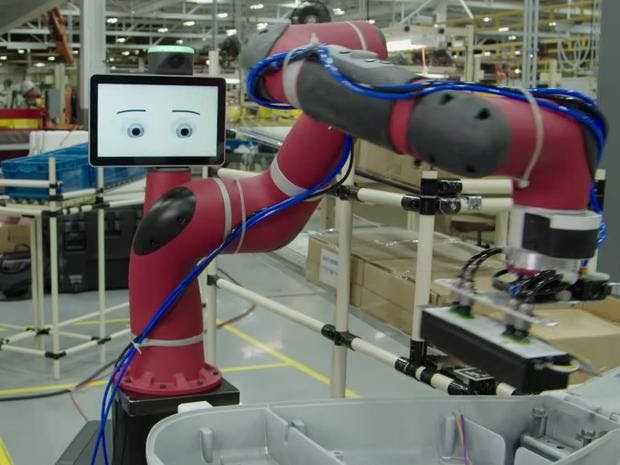Web-tool to discover if a robot will cut your job

As artificial intelligence and robotics continue to pick up steam, thousands of jobs we could once take for granted are at risk of being automated, threatening to leave a bevy of diligent workers on the dole. But there might be a tool you can consult to take the necessary measures before your time has come.
Created by designer-developer duo Dimitar Raykov and Mubashar Iqbal, ‘Will robots take my job?‘ is an amusing web-based tool that predicts how susceptible your occupation is to the ever-growing current of automation and computerisation.
The pleasantly designed website practically lets you fill in your role and proceeds to calculate what the odds are this job could one day be outsourced to robots.
The tool further provides additional data like the total number of people employed at each occupation as well as the projected growth for its respective field by the year 2024.
To offer such insight, ‘Will robots take my job?’ sources data from this automation research as well as statistics from the Bureau of Labor. It is worth noting that the report is specific to the US job market, though the same trend will likely follow globally sooner or later.
According to online job site Indeed.ca, not everyone needs to worry about being replaced by a machine because there will always be jobs out in the world that require a human touch.
“This automation isn’t anything new,” said Daniel Culbertson, economist at Indeed.ca. “It’s been happening in our labour market for centuries now. There’s always been new technologies that have come out and have changed the landscape of the labour market — taking some jobs but also creating more. But I think some of the reports that are out there today gloss over the fact that this will be a gradual transition.”
According to Culbertson, the types of jobs that will most likely become automated are the ones that require a low-level of skill and involve repetitive and routine tasks. Jobs in production are a great example of this.
The idea of job disappearing can seem like a frightening concept, Culbertson said. But if you want to prepare for the future, the best way to do it is to build up transferable, non-routine skills that can be applied across a spectrum of occupations.

